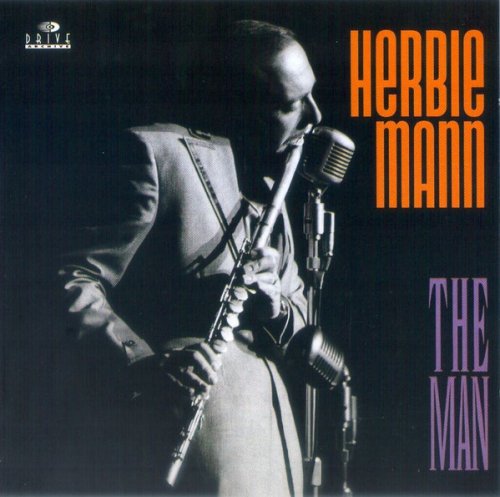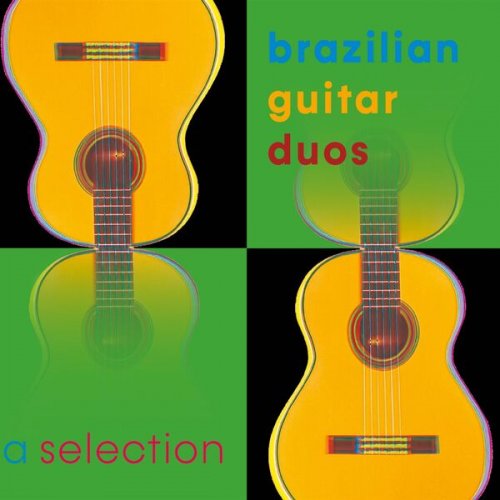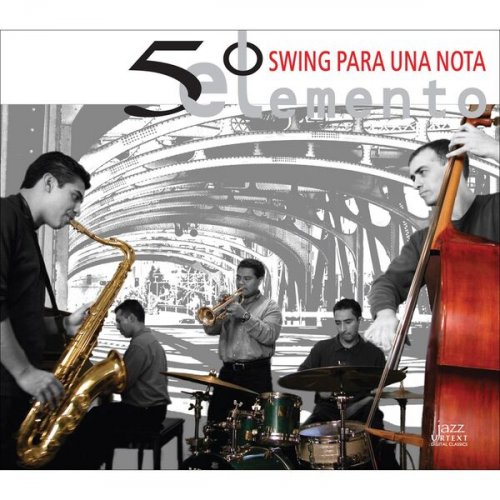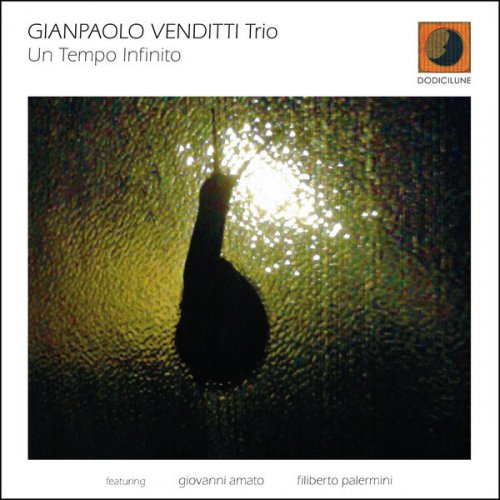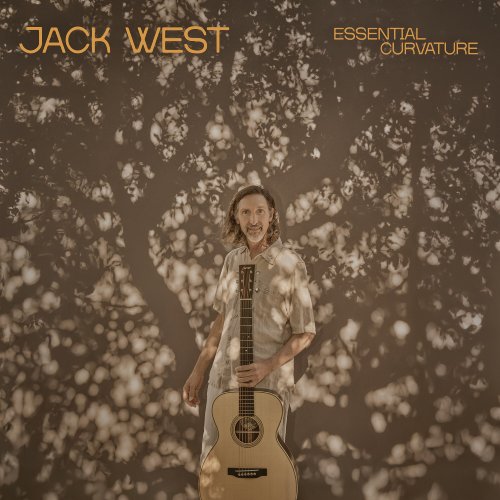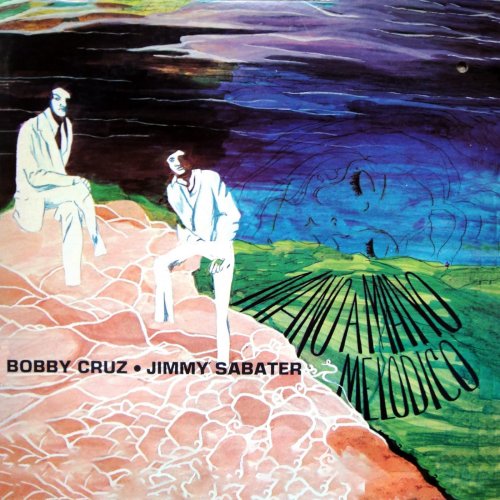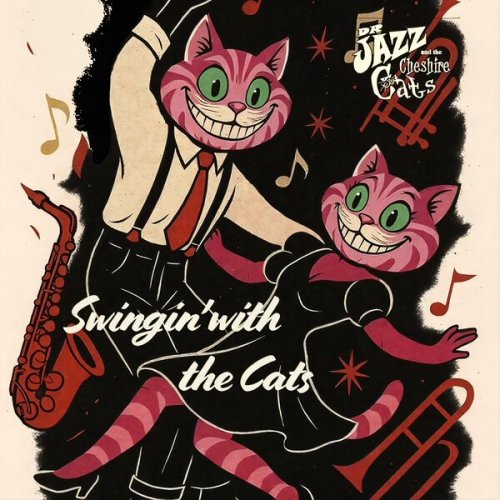The King'S Consort, Robert King - Handel: The Occasional Oratorio (1995)
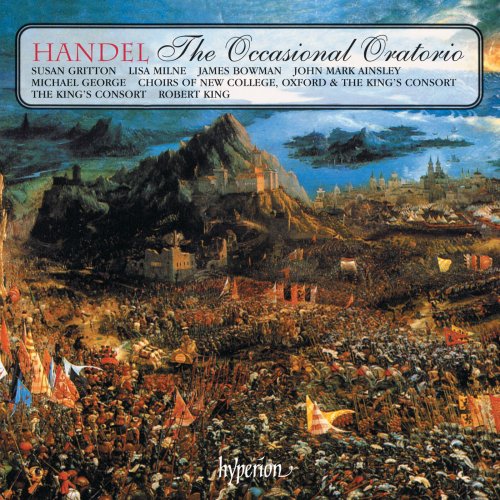
Artist: The King'S Consort, Robert King
Title: Handel: The Occasional Oratorio
Year Of Release: 1995
Label: Hyperion
Genre: Classical
Quality: flac lossless (tracks) +Booklet
Total Time: 02:24:28
Total Size: 696 mb
WebSite: Album Preview
TracklistTitle: Handel: The Occasional Oratorio
Year Of Release: 1995
Label: Hyperion
Genre: Classical
Quality: flac lossless (tracks) +Booklet
Total Time: 02:24:28
Total Size: 696 mb
WebSite: Album Preview
CD1
01. The Occasional Oratorio, HWV 62, Act I: No. 1, Overture: a. Grave
02. The Occasional Oratorio, HWV 62, Act I: No. 1, Overture: b. Allegro
03. The Occasional Oratorio, HWV 62, Act I: No. 1, Overture: c. Adagio
04. The Occasional Oratorio, HWV 62, Act I: No. 1, Overture: d. Marche
05. The Occasional Oratorio, HWV 62, Act I: No. 2, Arioso. Why Do the Gentiles Tumult? (Bass)
06. The Occasional Oratorio, HWV 62, Act I: No. 3, Chorus. Let Us Break Off by Strength of Hand
07. The Occasional Oratorio, HWV 62, Act I: No. 4, Aria. O Lord, How Many Are My Foes! (Tenor)
08. The Occasional Oratorio, HWV 62, Act I: No. 5, Chorus. Him or His God We Not Fear!
09. The Occasional Oratorio, HWV 62, Act I: No. 6, Aria. Jehovah, to My Words Give ear (Tenor)
10. The Occasional Oratorio, HWV 62, Act I: No. 7, Chorus. Him or His God We Scorn to Fear!
11. The Occasional Oratorio, HWV 62, Act I: No. 8, Recit. The Highest Who in Heaven Doth Dwell (Bass)
12. The Occasional Oratorio, HWV 62, Act I: No. 9, Aria. O, Who Shall Pour into My Swollen Eyes (Soprano)
13. The Occasional Oratorio, HWV 62, Act I: No. 10, Aria. Fly from the Threat'ning Vengeance, Fly! (Soprano)
14. The Occasional Oratorio, HWV 62, Act I: No. 11, Accompagnato. Humbled with Fear (Bass)
15. The Occasional Oratorio, HWV 62, Act I: No. 12, Aria. His Sceptre Is the Rod of Righteousness (Bass)
16. The Occasional Oratorio, HWV 62, Act I: No. 13, Aria. Be Wise, Be Wise at Length (Soprano)
17. The Occasional Oratorio, HWV 62, Act I: No. 14, Chorus. Be Wise, Be Wise at Length
18. The Occasional Oratorio, HWV 62, Act I: No. 15, Recit. Of Many Millions the Populous Rout (Tenor)
19. The Occasional Oratorio, HWV 62, Act I: No. 16, Aria. Jehovah Is My Shield, My Glory (Tenor)
20. The Occasional Oratorio, HWV 62, Act I: No. 17, Recit. Fools or Madmen Stand Not Within (Bass)
21. The Occasional Oratorio, HWV 62, Act I: No. 18, Chorus. God Found Them Guilty
22. The Occasional Oratorio, HWV 62, Act II: No. 1, Aria. O Liberty, Thou Choicest Treasure (Soprano)
23. The Occasional Oratorio, HWV 62, Act II: No. 2, Recit. Who Trusts in God Should Ne'er Despair (Soprano)
24. The Occasional Oratorio, HWV 62, Act II: No. 3, Aria. Prophetic Visions Strike My Eye (Soprano)
25. The Occasional Oratorio, HWV 62, Act II: No. 4, Chorus & Solo. May God, from Whom All Mercies (Alto)
26. The Occasional Oratorio, HWV 62, Act II: No. 5, Recit. The Lord Hath Heard My Pray'r (Tenor)
27. The Occasional Oratorio, HWV 62, Act II: No. 6, Aria. Then Will I Jehovah's Praise (Tenor)
28. The Occasional Oratorio, HWV 62, Act II: No. 7, Chorus. All His Mercies Shall Endure
CD2
01. The Occasional Oratorio, HWV 62, Act II: No. 8, Aria. How Great and Many Perils Do Enfold (Soprano)
02. The Occasional Oratorio, HWV 62, Act II: No. 9, Duet. After Long Storms and Tempests Overblown (Soprano/Alto)
03. The Occasional Oratorio, HWV 62, Act II: No. 10, Aria and Chorus. To God, Our Strength, Sing Loud (Bass)
04. The Occasional Oratorio, HWV 62, Act II: No. 11, Aria. He Has His Mansion Fix'd on High (Tenor)
05. The Occasional Oratorio, HWV 62, Act II: No. 12, Chorus. Hallelujah, Your Voices Raise
06. The Occasional Oratorio, HWV 62, Act III: No. 1, Symphony Pt. 1. A tempo giusto
07. The Occasional Oratorio, HWV 62, Act III: No. 1, Symphony Pt. 2. Musette
08. The Occasional Oratorio, HWV 62, Act III: No. 2, Chorus. I Will Sing unto the Lord
09. The Occasional Oratorio, HWV 62, Act III: No. 3, Aria. Thou Shalt Bring Them In (Alto)
10. The Occasional Oratorio, HWV 62, Act III: No. 4, Chorus. Who Is Like unto Thee, O Lord?
11. The Occasional Oratorio, HWV 62, Act III: No. 5, Aria. When Warlike Ensigns Wave on High (Soprano)
12. The Occasional Oratorio, HWV 62, Act III: No. 6, Recit. The Enemy Said, I Will pursue (Tenor)
13. The Occasional Oratorio, HWV 62, Act III: No. 7, Aria. The Enemy Said, I Will Pursue (Tenor)
14. The Occasional Oratorio, HWV 62, Act III: No. 8, Aria. The Sword That's Drawn in Virtue's Cause (Bass)
15. The Occasional Oratorio, HWV 62, Act III: No. 9, Chorus. Millions Unborn Shall Bless the Hand
16. The Occasional Oratorio, HWV 62, Act III: No. 10, Recit. When Israel, Like the Bounteous Nile (Soprano)
17. The Occasional Oratorio, HWV 62, Act III: No. 11, Aria. When Israel, Like the Bounteous Nile (Soprano)
18. The Occasional Oratorio, HWV 62, Act III: No. 12, Aria. Tyrants, Whom No Cov'nants Bind (Tenor)
19. The Occasional Oratorio, HWV 62, Act III: No. 13, Accompagnato. May Balmy Peace, and Wreath'd Renown (Soprano)
20. The Occasional Oratorio, HWV 62, Act III: No. 14, Aria. May Balmy Peace, and Wreath'd Renown (Soprano)
21. The Occasional Oratorio, HWV 62, Act III: No. 15, Chorus. Blessed Are All They That Fear the Lord
1745 was not a good year for Handel. Two-thirds of the way through his musical season the finances were so bad that, had he continued, Handel could have found himself near to bankruptcy. Once again he had misjudged the requirements of his musical public: there was no longer the desire for the number of oratorio performances he had scheduled, and the result was that not only was the composer’s bank balance in a terrible state but so was his health. The sixty-one-year-old Handel left London and retired to the country to recuperate, first to the seat of the Earl of Gainsborough, Exton Hall in Leicestershire, and then to Scarborough.
In national politics a greater crisis was brewing. Whilst King George II was away in Hanover, Prince Charles Edward, the Young Pretender, landed with his army in Scotland and started to march south. The English army was hastily recalled from Flanders, but when Bonnie Prince Charlie was victorious at the battle of Prestonpans in September and continued to press south, in certain quarters of London near panic set in. Under the leadership of the Duke of Cumberland, the son of George II, the English army moved northwards to confront the enemy, supported by a patriotic fervour that had not been seen in the capital for many years. Songs were written to support the army, including the present National Anthem, and the resident composer at the Haymarket Theatre, Gluck, contributed a suitably heroic drama, La Caduta de’ Giganti (which was greeted with as little enthusiasm as had been Handel’s concert season). Handel, by now the recipient of a pension from the royal court, felt it necessary to make his own musical contributions but, despite the Jacobites’ defeat at Derby in December, the year ended with the political situation still very much in the balance. Matters were not finally resolved until well into the next year when Cumberland routed the invading forces at the decisive battle of Culloden, earning his nickname of ‘Butcher Cumberland’. So, to raise flagging spirits in London, a major musical work was called for.
Handel’s new work seems to have been composed in something of a hurry and, as always, the composer was not afraid to recycle good material from earlier works. Confusion has surrounded who was the librettist for the Occasional Oratorio. A footnote under the air ‘O liberty, thou choicest treasure’ in the first edition of Judas Maccabaeus (which received its opening performances in April 1747) reads: ‘The following air was design’d, and wrote for this Place, but it got I know not how, into the Occasional Oratorio, and was there incomparably Set, and as finely executed.’ The author of Judas was Thomas Morell, yet all the other indications are that Hamilton Newburgh was Handel’s librettist for the Occasional Oratorio. Perhaps Morell was already at work on Judas and Handel, working flat out on what was now the more urgent composition, simply lifted the movement, together with Morell’s words, and installed it amongst Newburgh’s text. (Curiously, ‘O liberty’ was only inserted into Judas at the third performance.) The inclusion in Act II of music (and text) lifted directly from Athalia and in Act III from Israel in Egypt suggests that Handel was unconcerned in mixing the work of a number of authors.
By February 1746 the new oratorio was in rehearsal and on 8 February William Harris wrote: ‘Yesterday morning I was at Handel’s house to hear the rehearsal of his new occasional Oratorio. It is extremely worthy of him … He has but three voices for his songs—Francesina, Reinhold, and Beard—his band of music is not very extraordinary—Du Feche is his first fiddle, and for the rest I really could not find out who they were, and I doubt his failure will be in this article. The words of the Oratorio are scriptural but are taken from various parts, and are expressive of the rebel’s flight, and our pursuit of them. Had not the Duke carried his point triumphantly, this Oratorio could not have been brought on. It is to be performed in public next Friday.’ Not everyone was as enthusiastic, for on 3 February the writer Charles Jennens had noted in a letter:
The Oratorio, as you call it, contrary to custom, raised no inclination in me to hear it. I am weary of nonsense and impertinence; & by the Account L[or]d Guernsey gives me of this Piece I am to expect nothing else. Tis a triumph for a Victory not yet gain’d, & if the Duke [of Cumberland] does not make hast[e], it may not be gain’d at the time of performance. ’Tis an inconceivable jumble of Milton & Spencer, a Chaos extracted from Order by the most absurd of all Blockheads, who like the Devil takes delight in defacing the Beauties of Creation. The difference is, that one does it from malice, the other from pure Stupidity …
Despite that tirade, written perhaps not without a hint of professional jealousy (Jennens had, after all, worked three times already as an oratorio librettist with Handel, including Messiah), the General Advertiser of 14 February 1746 announced that, ‘At the Theatre-Royal in Covent-Garden, this day will be perform’d A New Occasional Oratorio’. Further performances were given on 19 and 26 February, and the work was revived (with some revisions) three more times in March the following year, just before the first performances of Judas Maccabaeus. Only three soloists, as we have seen, were named for the 1746 performances, but at least one other soloist must have been present, if only to sing the duet ‘After long storms’. In 1747 both Elisabetta de Gambarini and Caterina Galli took part as sopranos, a precedent we have used in this recording, and we have also allocated two low-set arias to an alto: otherwise the performing edition for this recording presents the movements heard in the 1746 performances.
Despite the success of those first 1746 performances, Jennens did not let up, and on 3 March he laced another letter to Holdsworth with even more vitriol:
You are mistaken as to the Occasional Oratorio, which is most of it transcrib’d from Milton & Spencer, but chiefly from Milton, who in his Version of some of the Psalms wrote so like Sternhold & Hopkins that there is not a pin to choose betwixt ’em. But there are people in the world who fancy everything which has Milton’s name to it. I believe Hamilton has done little more than tack the passages together, which he has done with his usual judgement & cook’d up an Oratorio of Shreds and patches.
Jennens was, with his own admission that he was not going to attend any performances, ensuring that he wrote with the same disadvantage under which other writers since have laboured: he had to judge Handel’s work without actually hearing it. Even if we accept some of his criticisms of the libretto, we do the work a disservice by approaching it with the expectation of finding a rip-roaring, operatic drama. Instead, Handel presents a series of dramatic tableaux. We find some terrific choruses, six first-rate orchestral movements and a fine variety of arias. For those who additionally enjoy a spot of Handelian detective work, there are a profusion of musical trails to follow. Here, in brief, is another splendid and unjustly neglected Handel oratorio.
Act I
The overture to the Occasional Oratorio is a strong, four-movement one. The opening Grave and the fine ensuing fugue had probably been written for the 1744 revival of Deborah: the Allegro also contains a theme from the overture to Telemann’s Troisième Production of the Musique de Table, a source to which Handel also turned in the organ concertos. Newly composed was the third movement, a B minor Adagio with a glorious line for Handel’s principal oboist. With the work’s wartime origins in mind, Handel concluded with a stirring military March. In the interests of getting straight on with the drama, Handel forgoes an opening chorus, presenting instead the bass solo ‘Why do the gentiles tumult’ whose strong rhythms, repeated string figurations and woodwind interpolations set a suitably militaristic tone. The choir enters with the first of three crusading choruses, the swaggering rhythms of ‘And cast from us’ capped by the delayed entry of trumpets and drums.
The tenor takes a gently heroic role in the oratorio, and his opening aria ‘O Lord, how many are my foes’ is an especially appealing one, with repeated string chords complemented by another delicious oboe solo. The chorus responds with another, much truncated version of ‘Him or his God we not fear!’, to which the tenor responds with another supplicatory aria, ‘Jehovah, to my words give ear’, duetting this time with a solo cello. The chorus ends the first episode with another repeat of the swinging battle chorus, the urgency of mood reflected by the presence of trumpets and drums from the outset.
The next scene is announced by the bass, continuing the paraphrase of bellicose words from Psalm 2. The soprano’s first entry is a gentle one, with the aria, ‘O, who shall pour into my swollen eyes’ lamenting the failings of the world; but she too takes up the warlike theme with the fiery aria ‘Fly from the threat’ning vengeance, fly!’, whose virtuoso runs must have delighted the singer in the first performances, La Francesina (the French soprano Elisabeth Duparc). The movement was a borrowing from the 1745 performances of Samson where Miss Robinson, granddaughter of the famous Purcellian countertenor William Turner, sang it with its original text, ‘Fly from the cleaving mischief’. The solo bass (originally Thomas Reinhold) returns with the accompagnato ‘Humbled with fear’ and the splendid aria ‘His sceptre is the rod of righteousness’: the reintroduction of harmony after unison passages for singer and strings makes the ‘great Dragon’ that ‘strongly doth repress’ all the more picturesque. The middle section is a fine contrast, noble in its hymn-like melody; keeping the drama moving, Handel re-writes and shortens the first section, rather than offering a complete ‘da capo’.
The soprano solo ‘Be wise, be wise at length, ye kings averse’ is a delight, lilting gently with a simple continuo line before it is transformed into an equally appealing chorus. But the peaceful mood does not last and the four ‘Grave’ bars of ‘Or brought full low’ lead into another warlike chorus section, where the enemy are ‘Scatter’d like sheep’ and perish ignominiously. In ‘Jehovah is my shield’ the tenor sings of his confidence in God, the orchestral texture fleshed out by a rich viola line. Handel’s depiction of ‘I lay and slept’ is especially fine. The chorus calls that the enemy be soundly defeated in a movement based on material from the F major concerto ‘a due cori’, whose scoring for horns (making their only appearance in the oratorio adaptation) ensures that Act I ends in belligerent mood.
Act II
Act II begins with a sequence of movements for solo soprano, beginning with the famous aria ‘O liberty, thou choicest treasure’. As has already been written, this aria seems to have been intended for Judas Maccabaeus but was added instead to the Occasional Oratorio: it was only restored to Judas at the third 1747 performance. It proved to be one of Handel’s biggest hits for years afterwards. The lively aria which follows, ‘Prophetic visions strike my eye’, featured a neat piece of topical plagiarism in its quotation of a phrase from a song in Thomas Arne’s opera Alfred: ‘Rule Britannia’ had first been heard by audiences at Cliveden in 1740 and was adopted by London audiences at the opera’s revival in the capital in 1745. (Arne’s other famous patriotic song, ‘God save the King’, was sung at Drury Lane by ‘the Gentlemen of that House’ every night until the danger of the Young Pretender’s rebellion was over.)
Handel’s next borrowing was rather more extensive, although it was at least taken from one of his own compositions. In Athalia ‘Around let acclamations ring’ grandly greets the newly crowned Joas. In the Occasional Oratorio, with a new text, ‘May God, from whom all mercies spring’, the movement is equally spectacular in its eight-part choral texture and fulsome orchestration. The tenor aria ‘Then will I Jehovah’s praise’ also has its origins in another work, the Masque Comus: during his recuperation in the summer of 1745 at the seat of the Earl of Gainsborough Handel contributed a handful of movements to the finale of a score which was largely by Arne. The following chorus was lifted from the same masque, its words changed from the original ‘Happy plains’ to ‘All his mercies shall endure’. Next comes a charmingly lilting soprano solo, ‘How great and many perils do enfold’ which is followed by the delightful duet ‘After long storms’, strongly redolent of the early Italian duets.
The bass solo ‘To God, our strength’ is a jewel. The solemn opening, with high trumpet over slow-moving strings, harks back nearly thirty years to the delicious opening of the Birthday Ode for Queen Anne, ‘Eternal source of light’. This time Handel answers the trumpet with a solo oboe, and the two wind players engage in a private duet before the solo bass presents glorious music. Here is Handel at his most captivating. At ‘Prepare the hymn’ the mood changes to a more steadfast, processional one, and Handel introduces the Lutheran chorale melody ‘Ein feste Burg’. The composer marshals his build-up magnificently, presenting the theme first in the solo bass, then with the full chorus. Finally the full ensemble, complete with ringing trumpets and timpani, celebrates in rousing style. The tenor solo which follows, ‘He has his mansion fix’d on high’, was also borrowed from Comus, and leads to a stirring choral conclusion to Act II, ‘Hallelujah, your voices raise’. The fugue which is introduced at the mid-point, ‘Jehovah, Lord of hosts’, is a fine one.
Act III
The third part begins with an extensive, two-part orchestral symphony. The first section is taken from the first movement of the Concerto Grosso in G, Opus 6 No 1. For his second movement Handel turned to the Musette of his Concerto Grosso in E flat, Opus 6 No 6, which in its rich string scoring and glorious melodies bears striking resemblances to Corelli’s famous ‘Christmas Concerto’. The chorus that follows, ‘I will sing unto the Lord’, is one of Handel’s most thrilling, borrowed lock, stock and barrel from Israel in Egypt. Scored for double choir this is hugely dramatic music, flinging its themes from part to part, and saving the hair-raising entry of the brass to the last few pages.
Also taken from Israel in Egypt was the fine alto solo ‘Thou shalt bring them in’, now transposed up a semitone into F major to lead into another splendid chorus from the same oratorio. With its ‘Grave’ opening scored in sixteen parts, ‘Who is like unto thee’ is as sensational as ‘Lord of eternity’ in Deborah, and leads into one of the composer’s best-known choruses, ‘He gave them hailstones for rain’. The orchestral opening, firing a C major chord between the strings and woodwind (complete with a vulgar bottom C for the bassoons), builds into the entry of the two opposing choruses, who indulge in nothing short of musical warfare, driven on by a wild orchestral accompaniment. Handel’s timpanist must have had a field-day!
After such choral fireworks Handel returns to solo movements. The soprano takes ‘When warlike ensigns’, nicely varied in its moods and, with its pastoral bagpipes at ‘No pasture now the plain affords’, also including another oblique reference to ‘Rule Britannia’. The lure of Israel in Egypt proved unstoppable and for ‘The enemy said’ Handel again lifted the complete movement, ensuring that his tenor soloist was offered the opportunity for vocal pyrotechnics alongside the other, more lyrical arias of the Occasional Oratorio. For the bass Reinhold Handel produced a blustering setting of ‘The sword that’s drawn’ which leads into a spirited chorus, ‘Millions unborn shall bless the hand’. For La Francesina he wrote a charming setting of ‘When Israel, like the bounteous Nile’, and for John Beard a final, defiant aria (marked ‘pomposo’), ‘Tyrants, whom no cov’nants bind’. Before the finale the soprano calls for ‘balmy peace’ to descend on England’s battle-hero, once again recycling a charmingly melodic aria from Comus. It is left to the choir to introduce the final celebrations, which it does with Handel’s most famous chorus of all, the coronation anthem ‘Zadok the Priest’, here reworded ‘Blessed are all they that fear the Lord’, and omitting the triple-time middle section ‘And all the people rejoiced’. If English hearts were going to be stirred, surely no music would have carried out the task better.

